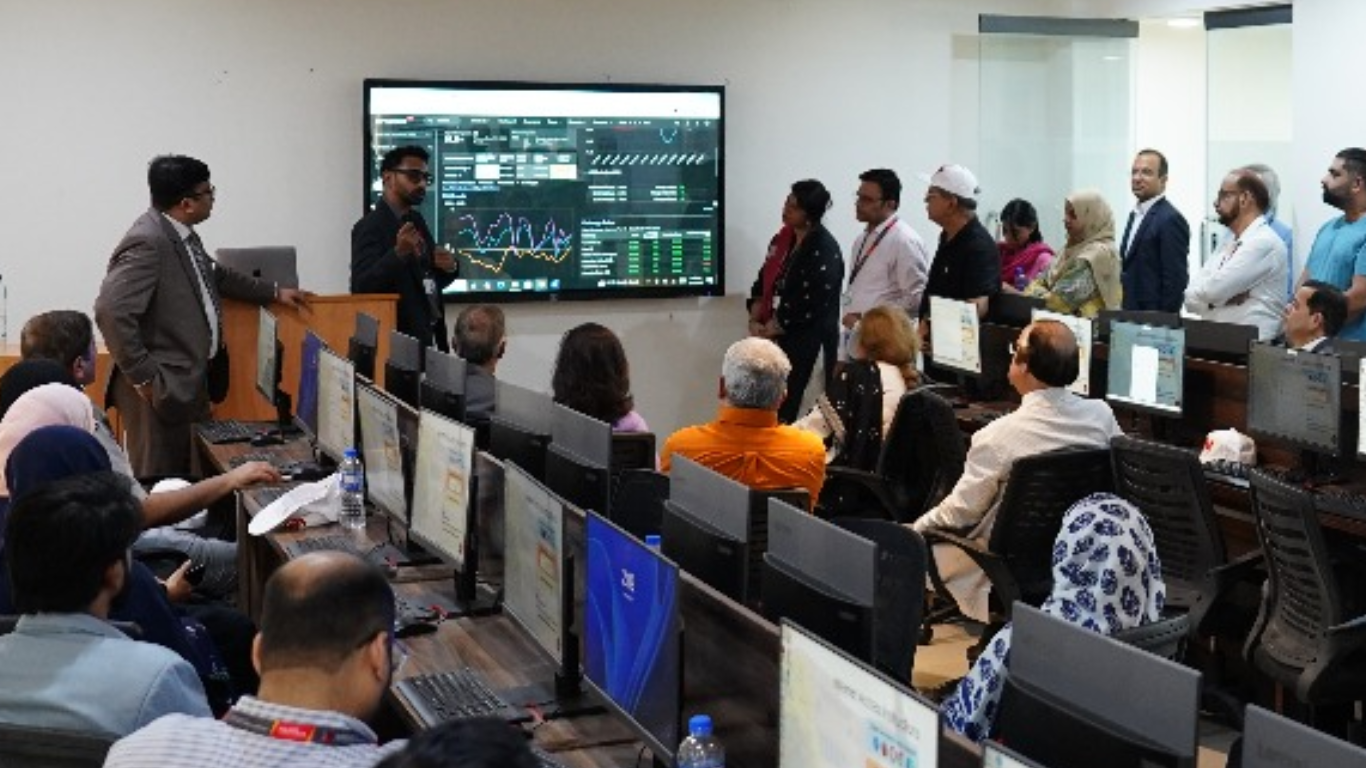Now Reading: What Is an Entrepreneurial Finance Lab and How Does It Work?
-
01
What Is an Entrepreneurial Finance Lab and How Does It Work?
What Is an Entrepreneurial Finance Lab and How Does It Work?

Starting a business is a dream for many, but securing the necessary funding can often feel like an impossible hurdle. Traditional banks rely heavily on credit histories and collateral, which many new entrepreneurs and small business owners simply don’t have. This is where an innovative approach comes into play. Imagine a system that could predict your creditworthiness based on your personality and potential, not just your past financial transactions. This is the core idea behind the entrepreneurial finance lab, a groundbreaking model designed to expand financial access for underserved business owners around the world. It’s a concept that bridges the gap between ambition and opportunity, using psychology and data to identify promising entrepreneurs who might otherwise be overlooked. This approach isn’t just about lending money; it’s about investing in human potential and fostering economic growth from the ground up.
What Exactly Is an Entrepreneurial Finance Lab?
At its heart, an entrepreneurial finance lab is a system that uses alternative data to assess the credit risk of individuals, particularly small business owners who lack a formal credit history. Instead of just looking at bank statements and past loan performance, this model uses psychometric testing to evaluate an applicant’s character, skills, and business acumen. Think of it as a personality test for business loans. The lab collects data through a series of questions designed to measure traits like honesty, intelligence, and grit. This information is then processed by sophisticated algorithms to generate a credit score that predicts the likelihood of loan repayment. This method has proven to be incredibly effective in emerging markets and for minority-owned businesses that have historically been excluded from traditional financial systems. It provides lenders with a new, reliable tool to make smarter, more inclusive lending decisions.
The Origins and Evolution of the Concept
The concept of the entrepreneurial finance lab grew out of a research initiative at Harvard University. Researchers wanted to solve a major problem: how can lenders safely provide capital to millions of capable entrepreneurs in developing countries who are “invisible” to the formal banking sector? The initial project aimed to create a low-cost, scalable, and automated tool that could predict default risk without relying on traditional credit data. Early pilots in several countries showed that psychometric data was a powerful predictor of loan performance. The success of this research led to the creation of a standalone organization, the Entrepreneurial Finance Lab (EFL), which began partnering with financial institutions globally. Over time, the model has evolved, incorporating more advanced machine learning techniques and expanding its data sources to create even more accurate risk assessments, moving beyond academia to become a real-world fintech solution.
How Psychometric Credit Scoring Works
The magic behind the entrepreneurial finance lab is its psychometric scoring process. When an entrepreneur applies for a loan with a partner institution, they complete a digital questionnaire, often on a tablet or smartphone. This test can take around 20-30 minutes and is designed to feel more like a series of puzzles or situational questions than a formal exam. It measures a range of attributes that are correlated with successful entrepreneurship and loan repayment.
Key Traits Measured
The test assesses several key areas to build a complete profile of the applicant. It looks beyond simple financial numbers to understand the person behind the business idea.
- Fluid Intelligence: This measures problem-solving abilities and the capacity to think logically and adapt to new situations, which is crucial for any business owner facing unexpected challenges.
- Ethics and Honesty: The assessment includes questions designed to gauge an applicant’s integrity. Lenders need to trust that borrowers will be honest in their dealings and committed to repaying their debt.
- Personality: It evaluates personality traits like conscientiousness (being organized and diligent), extraversion, and risk aversion to see how they align with successful business management.
- Business Skills: Some questions may simulate business scenarios to test the applicant’s decision-making and practical knowledge.
This data is then analyzed instantly to produce a three-digit credit score, giving the loan officer a clear recommendation. This isn’t about passing or failing; it’s about creating a more nuanced picture of risk.
The Impact on Financial Inclusion
The single greatest impact of the entrepreneurial finance lab model is its contribution to financial inclusion. Around the world, billions of people operate outside the formal financial system. They may run successful small businesses, like a market stall or a repair shop, but without a bank account or credit history, they cannot access the capital needed to grow. This “credit gap” stifles economic development and perpetuates poverty. The entrepreneurial finance lab directly addresses this by providing a viable alternative to traditional credit scoring. It allows lenders to confidently serve new market segments, including women, young entrepreneurs, and rural business owners. By giving these individuals a chance to secure their first business loan, the model creates a pathway into the formal economy, enabling them to build a credit history for the future.
Key Differences: Traditional vs. Psychometric Lending
Understanding the distinctions between traditional lending and the entrepreneurial finance lab approach highlights why it is so revolutionary. Traditional banks have a rigid, backward-looking process, while the psychometric model is flexible and forward-looking, focusing on potential rather than the past.
|
Feature |
Traditional Lending |
Entrepreneurial Finance Lab |
|---|---|---|
|
Primary Data Source |
Credit history, collateral, income statements |
Psychometric data, behavioral patterns |
|
Assessment Focus |
Past financial performance |
Future potential, character, and skills |
|
Target Applicant |
Established individuals with formal records |
“Thin-file” or “credit invisible” individuals |
|
Decision Speed |
Days or weeks |
Minutes |
|
Bias Potential |
Can be biased against certain demographics |
Objective and data-driven |
The Technology Powering the Lab
The entrepreneurial finance lab is not just a theory; it is a sophisticated technology platform. At its core, it leverages machine learning and big data analytics. The platform hosts the psychometric assessment, which is delivered digitally to applicants. As soon as the test is complete, the data is sent to the cloud, where proprietary algorithms analyze the responses in real time. These algorithms have been trained on millions of data points from past loan applications and their repayment outcomes. This vast dataset allows the model to identify subtle patterns in responses that correlate with credit risk. The technology is designed to be user-friendly for both the applicant and the loan officer, providing a seamless and efficient experience that integrates directly into a bank’s existing workflow.
Benefits for Lenders and Financial Institutions
Partnering with an entrepreneurial finance lab offers significant advantages for banks and other lending institutions. The most obvious benefit is the ability to expand their customer base and enter new, previously untapped markets. By accurately scoring “thin-file” applicants, lenders can increase their loan portfolios while managing risk effectively. This often leads to higher profitability. Furthermore, the automated nature of the scoring process reduces operational costs and speeds up decision-making, allowing loan officers to process applications more efficiently. This technology also helps financial institutions meet regulatory goals related to financial inclusion and community reinvestment. It transforms lending from a high-touch, subjective process into a scalable, data-driven science. For more perspectives on innovative financial tools, resources like https://forbesplanet.co.uk/ often cover emerging trends in the fintech space.
Challenges and Ethical Considerations
Despite its many benefits, the entrepreneurial finance lab model is not without its challenges. One concern is the potential for cultural bias in psychometric testing. A test designed for one culture might not be as effective or fair in another. To mitigate this, questions and scoring models must be carefully calibrated for each specific region. Another consideration is data privacy. Since the system collects personal and psychological data, robust security measures and transparent policies are essential to protect applicants’ information. There is also the risk of applicants trying to “game” the test. However, the assessments are designed with internal consistency checks to detect dishonest or random answering patterns, making it difficult to cheat the system effectively.
The Future of Alternative Credit Scoring
The success of the entrepreneurial finance lab is part of a broader trend in the financial industry toward alternative credit scoring. As the world becomes more digital, new data sources are emerging everywhere. Fintech companies are now using everything from mobile phone usage patterns and social media activity to utility bill payments to assess creditworthiness. The future will likely see a hybrid approach, where psychometric data is combined with other alternative data streams to create even more predictive and holistic credit profiles. This ongoing innovation promises to further democratize access to finance, creating a more equitable global economy where an individual’s potential, not their background, determines their ability to succeed. The principles pioneered by the entrepreneurial finance lab will continue to be a cornerstone of this evolution.
Key Takeaways
- An entrepreneurial finance lab uses psychometric testing to assess the creditworthiness of entrepreneurs who lack a traditional credit history.
- It measures traits like intelligence, ethics, and personality to predict loan repayment success.
- This model significantly improves financial inclusion by enabling lenders to serve “credit invisible” populations.
- The process is fast, automated, and data-driven, helping lenders expand their market while managing risk.
- Ethical considerations like cultural bias and data privacy are important challenges that need careful management.
Frequently Asked Questions (FAQ)
Q1: Is a psychometric test the only factor used for the loan decision?
No, the psychometric score is typically used as a key data point alongside other information the lender may collect. It is a powerful tool to help score applicants who lack traditional data, but loan officers still make the final decision.
Q2: Can someone with a bad credit history still get a loan using this method?
The entrepreneurial finance lab model is designed primarily for those with no credit history, not necessarily a poor one. However, some lenders may use it as a supplementary tool to better understand an applicant who has a weak or old credit file.
Q3: How can I find a lender that uses an entrepreneurial finance lab?
The Entrepreneurial Finance Lab (EFL) partners with financial institutions in over 20 countries. You would need to check with banks and microfinance institutions in your region to see if they have adopted this technology for their small business lending programs.
Conclusion
The entrepreneurial finance lab represents a powerful shift in how we think about credit and opportunity. By looking beyond traditional metrics and focusing on an individual’s inherent potential, this model has unlocked capital for countless deserving entrepreneurs around the globe. It demonstrates that with the right tools and a forward-thinking approach, we can build a more inclusive and dynamic financial system. For lenders, it offers a pathway to sustainable growth, and for borrowers, it provides the first crucial step on the ladder to economic empowerment. As technology continues to advance, the principles of psychometric scoring will undoubtedly play an even larger role in shaping the future of finance.
















